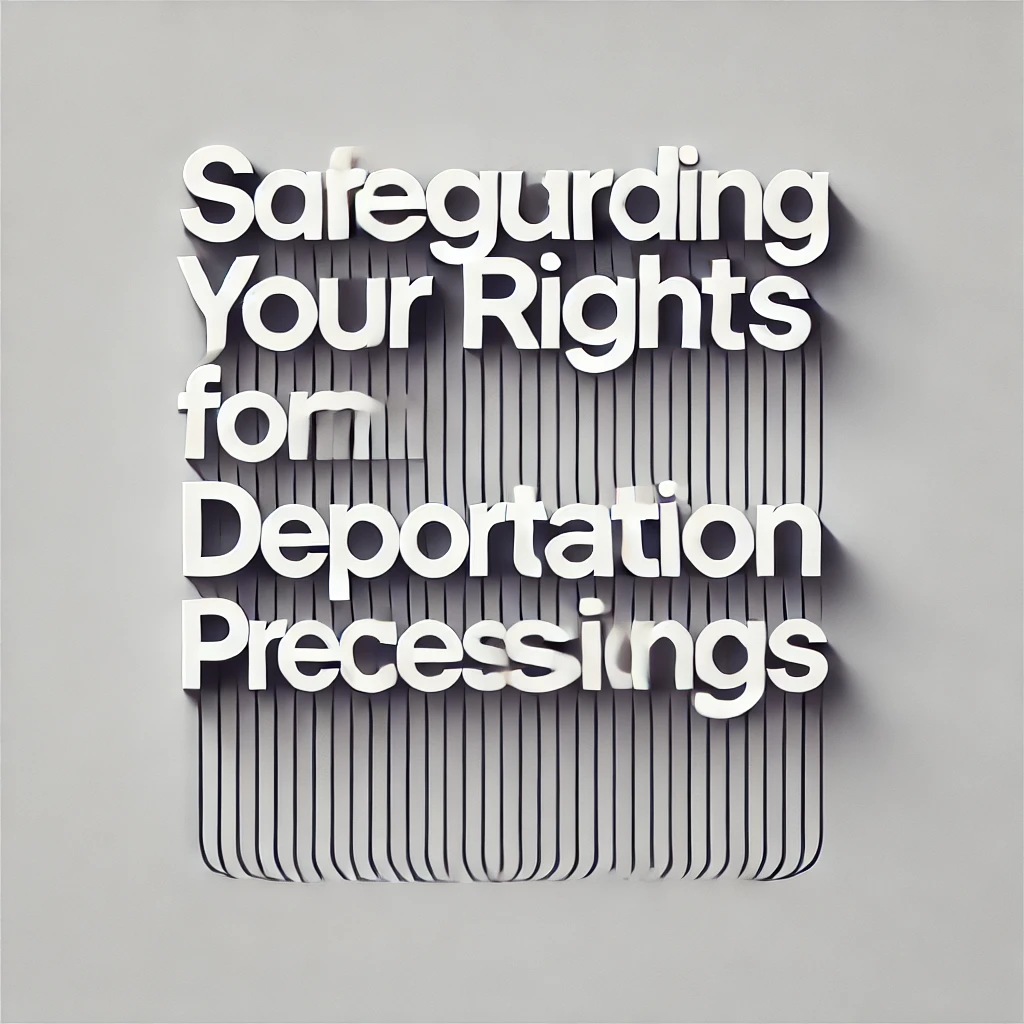Facing deportation proceedings can be a daunting experience, but it is crucial to understand that you have specific rights designed to ensure fair treatment throughout the process. Being informed and proactive can significantly impact the outcome of your case.
Understanding Deportation Proceedings
Deportation, also known as removal, is the legal process through which the U.S. government seeks to expel a non-citizen for violating immigration laws. Common reasons include overstaying a visa, unauthorized entry, or involvement in certain criminal activities. The process typically begins when the Department of Homeland Security (DHS) issues a Notice to Appear (NTA), detailing the charges against you and requiring your presence before an immigration judge.
Your Fundamental Rights
- Right to a Fair Hearing: You are entitled to a fair hearing before an immigration judge, where you can contest the charges and present evidence in your defense.
- Right to Legal Representation: While the government would not provide an attorney, you have the right to hire one at your own expense. Legal counsel can offer invaluable assistance in navigating complex immigration laws.
- Right to Interpretation Services: If you are not proficient in English, you have the right to an interpreter during your hearings to ensure clear communication.
- Right to Due Process: The Constitution guarantees due process, meaning you must receive notice of the proceedings and an opportunity to be heard.
Steps to Protect Your Rights
- Seek Legal Counsel: Engage an experienced immigration attorney immediately upon receiving an NTA. They can help build a robust defense, identify potential relief options, and represent you in court.
- Stay Informed: Educate yourself about the deportation process and your rights. Resources like the American Civil Liberties Union (ACLU) provide comprehensive guides on immigrants’ rights.
- Gather Documentation: Collect all relevant documents, such as visas, passports, employment records, and any evidence supporting your case, to present during proceedings.
- Attend All Hearings: Ensure you attend all scheduled hearings. Failure to appear can result in an automatic removal order.
- Exercise Caution During Interactions: If approached by immigration officers, remember you have the right to remain silent and refuse consent to a search without a warrant.
Potential Avenues for Relief
Depending on your circumstances, you may be eligible for certain forms of relief, including:
- Asylum: If you fear persecution in your home country due to race, religion, nationality, political opinion, or membership in a particular social group.
- Cancellation of Removal: Available to certain non-permanent residents who have maintained continuous physical presence in the U.S. for a specific period and can demonstrate exceptional hardship upon removal.
- Adjustment of Status: If you have an immediate relative who is a U.S. citizen, you might be eligible to adjust your status to that of a lawful permanent resident.
The Importance of Due Process
Due process is a fundamental constitutional guarantee that applies to all individuals within the United States, regardless of immigration status. It ensures that laws and legal proceedings are fair and that individuals receive notice and an opportunity to be heard before any governmental deprivation of life, liberty, or property. In the context of deportation, due process means you have the right to a fair hearing, the opportunity to present your case, and the chance to challenge the government’s evidence against you.
Navigating deportation proceedings requires vigilance and an understanding of your rights. By securing legal representation, staying informed, and actively participating in your defense, you can better protect your interests and work towards a favorable outcome. Remember, the law affords you specific protections—it is essential to exercise them fully.

